South Kalimantan Governor Sahbirin Noor’s Corruption
South Kalimantan Governor Sahbirin Noor is suspected of receiving commissions on three projects in the e-catalog. He has not been seen since being named a suspect.
maaf email atau password anda salah

South Kalimantan Governor Sahbirin Noor is suspected of receiving commissions on three projects in the e-catalog. He has not been seen since being named a suspect.
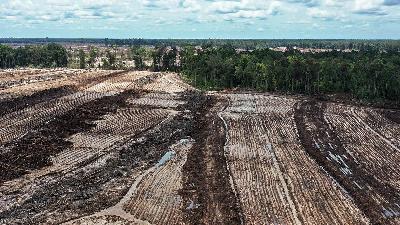
The food estate project in Central Kalimantan went into motion before relevant regulations and an environmental analysis were published. Prabowo Subianto and Moeldoko are behind companies running food estates.
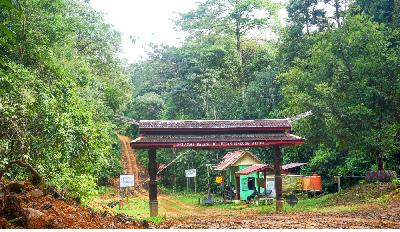
East Kalimantan’s wilderness has managed to keep the Wehea Protected Forest “hidden” amid logging and oil drilling. The 38,000-hectare forest is home to a variety of protected species, including the orangutan (Pongo pygmaeus). In the face of numerous challenges, the Wehea Dayak tribe has taken firm action to safeguard and preserve their forest and its resources, and are now working with the government, non-profit organizations and even companies. Meanwhile, the customary community also strives to maintain the natural balance by celebrating Lom Plai, a thanksgiving tradition. In celebration of World Biodiversity Day on May 22, Tempo English reports.

Meliana Christanty has documented hundreds of Kalimantan’s traditional dishes. She is also popularizing the region’s unique recipes through cooking classes and social media.

THE Central Kalimantan provincial government will soon build a bridge linking it with West Kalimantan province at Tumbang Samba village, Katingan regency, Central Kalimantan. The bridge will have a length of 450 meters over the Katingan River. "We've submitted a proposal to the central government. Construction starts next year," said Leonard B. Ampung, head of the Central Kalimantan Public Works Agency, last week.

Russia has pledged to build a refinery to process bauxite and produce alumina in West Kalimantan. "Rusal is now working very closely on the project," said Russian Ambassador to Indonesia Mikhail Galuzin at his residence in Jakarta on March 5. Rusal is the world's largest aluminum company.
In addition to the refinery, Galuzin said Russia would build generators to provide electricity. Meanwhile, he added that efforts would be made to assist an ongoing railway project East Kalimantan as Indonesia strives to improve its infrastructure and connectivity. "We are very committed and the amount of investment has come out to more than US$1 billion," he said.

Foreign researchers rang the alarm bells. "The survival of endangered species in Kalimantan is increasingly threatened," warned Matthew Struebig, biological conservation professor at the University of Kent in England. Struebig and his colleagues outlined the threat in the January 22 edition of the journal Current Biology.
Based on the researchers' findings, almost half of the animals' habitat will disappear in the coming two or three decades. In other words, one in three mammal species on the island of Borneo will lose 30 percent or more of their habitats by 2080.

A few enterprising business people in Central Kalimantan province have found a new way of touring the area's meandering rivers and dense forests. By modifiying the Dayak's traditional boat, they have created a floating hotel, which can take visitors downstream to traditional villages and observe up close the flora and fauna of pristine forests. In return, the local population earn additional income without having to cut a single tree. However, such efforts are not supported by the proper infrastructure to make the enterprise more effective. Tempo English reports from Central Kalimantan.

Kalimantan has the largest forest area in Indonesia, and the highest rate of forest destruction among the archipelago's islands. According to the NGO Save Our Borneo, 80 percent of forest destruction in Kalimantan is caused by expanding oil palm plantations. Pastor Samuel Oton Sidin of the OFM Cap decided to do something about the loss of forests on the island. He mobilized communities to replant trees in barren mountain slopes, succeeding in greening 108 hectares of land around the Tunggal mountains of West Kalimantan province. Environmentalist Galuh Sally managed to plant 1.6 million of gaharu tree seedlings in South Kalimantan. On the occasion of World Tree Day on November 21, Tempo English reports on how heroes like Father Oton and Galuh are able to motivate people to fight and save their forests.

Water is abundant in West Kalimantan, yet the province has trouble obtaining clean water supply. Some 80 percent of inhabitants rely on rainwater for drinking and cooking, which gradually ends up damaging their teeth.

Kalimantan logs continue to flow into Malaysia. Officials blame each other for the island’s deforestation.

Lighthouses will be constructed at Gosong Niger in West Kalimantan, so fishermen will no longer go astray.

In Central Kalimantan’s Tanjung Puting National Park—one of the largest conservation forests in Indonesia—millions of cubic meters of ramin (Gonystylus spp) and meranti (Shorea spp) trees are cut down, hauled out and sold illegally, costing the country more than Rp70 billion a year.
Pangkalan Bun, the capital of the West Kotawaringin Regency in Central Kalimantan, has become the most important base for the illegal business, a trade which is spreading like a contagion. It has given birth to a “local king” who has the power to make people from illegal loggers to high-ranking officials tremble with fear. His name is Abdul Rasyid, one of the members of the People’s Consultative Assembly (MPR) from the Golkar Party.
Who is Abdul Rasyid? Is it true that he is the mastermind behind the massive timber theft in Tanjung Puting? Follow TEMPO’s investigation.
International Tuesday, October 22, 2002 Edition

The irony began on an island with plentiful mineral resources. It was noticeable in Sangatta, a small town in East Kalimantan where the earth is blackened with abundant coal. Extracted for almost a decade by PT Kaltim Prima Coal (KPC)a joint venture between two foreign giants, Britains British Petroleum and Australias Rio Tintoincome from the mineral should have been allocated to Indonesia as of 1995. However, the case of divestment of KPC shares, delayed for the last six years, keeps the wealth beyond the expectation of public welfare promotioneven amid the euphoria of political and economic decentralization. The tradition of low transparency, the popular sense of justice being victimized by local elite rivalry, the feud between central and regional institutions, high-level lobbying and the trickery of mock firms are the murky stories arising from the heat of the struggle for Sangatta coal.

Driven by corporate demand, helicopter business opportunities continue to grow. Operators are increasingly expanding their fleets.

There is an increasingly real threat to Indonesia’s biodiversity. It cannot be overcome through empty slogans at international forums.
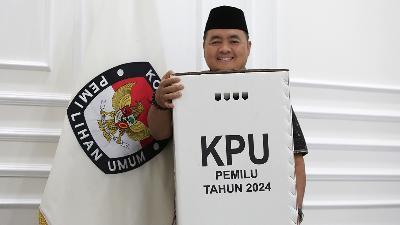
KPU Chair Mochammad Afifuddin on turbulence within his institution following the dismissal of Hasyim Asy’ari, and the Constitutional Court’s decision on the regional head elections.
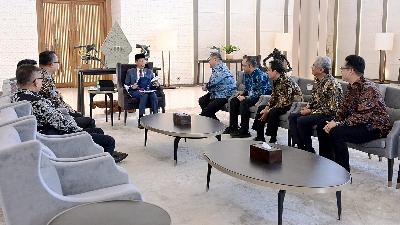
Various parties from the National Police Chief to the State Palace are accused of interfering in the KPK leadership candidates selection process. The candidates are divided into four clusters.
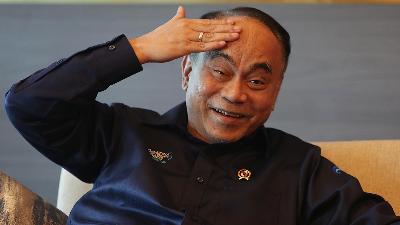
Tempo’s interview with Minister of Communication and Informatics Budi Arie Setiadi about Jokowi’s campaign before the end of his tenure.

As President Jokowi's term neared its end, instructions were given to promote the government's achievements, and billions of rupiah in contracts were offered to the media.
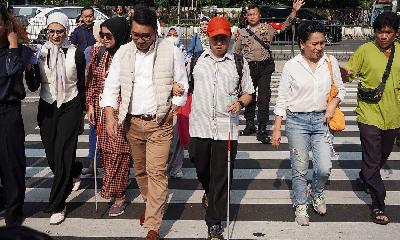
Jakarta governor and deputy governor candidates promise improvements in inclusive public transportation.
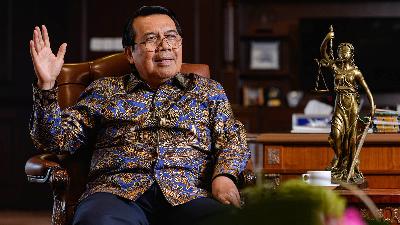
Supreme Court Chief Justice Muhammad Syarifuddin uses artificial intelligence to handle cases. Case brokers continue to be a threat.
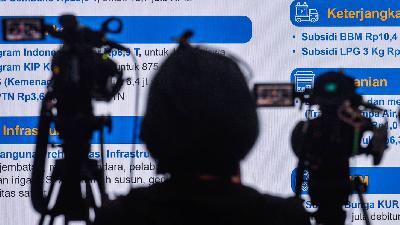
Media companies are experiencing upheaval due to the rapid changes in the business landscape. The industry is moving towards a new equilibrium.

Using a variety of pretexts, the political parties replace elected legislative candidates. This is a betrayal of the people’s choice.
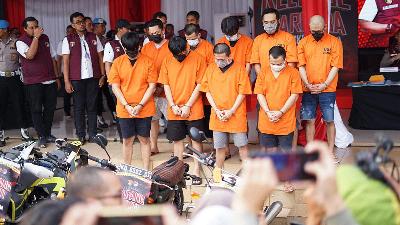
Hendra Sabarudin’s drug network distributed methamphetamine from Tarakan prison starting in 2017, allegedly aided by police and prison guards.
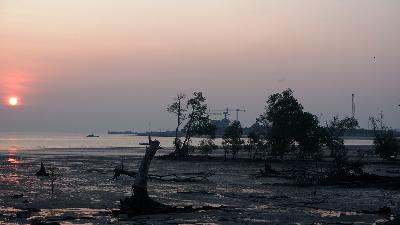
The government plans to dredge 17.6 billion cubic meters of sea sand and sediment, altering the landscape and destroying marine life.
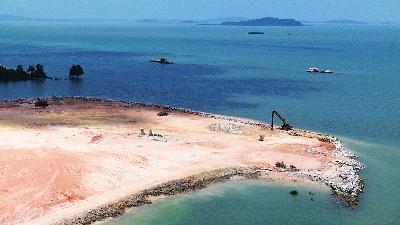
The government designated a number of areas as zones for cleaning sediment and sea sand.

Anindya Bakrie ousts Arsjad Rasjid from the position of General Chair of the Indonesian Chamber of Commerce and Industry (Kadin). The Palace’s support shifted.
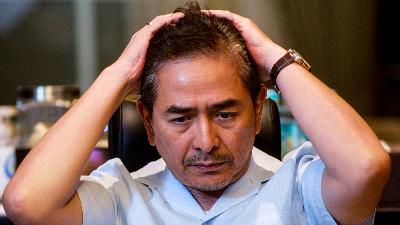
Anindya Bakrie ousted Arsjad Rasjid as the Chair of the Indonesian Chamber of Commerce and Industry (Kadin). The organization is becoming like a political party and enjoys large funds coming in from overseas.
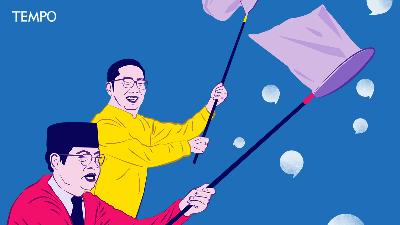
Gubernatorial candidates are trying to win over the votes of Anies Baswedan supporters in the Jakarta regional election. Jokowi reportedly shifted his support.
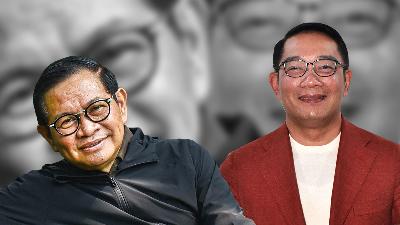
Pramono Anung and Ridwan Kamil shed light on the dynamics surrounding their appointments as Jakarta gubernatorial candidates.
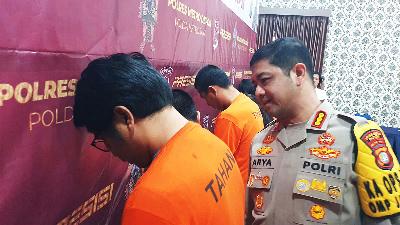
Police uncover baby trafficking syndicate operating in Java-Bali since 2023. Five babies were already sold.
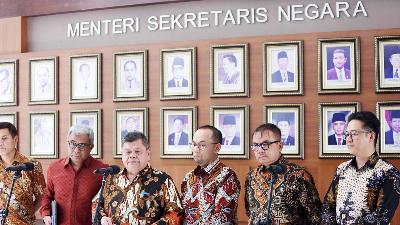
News summary on the conflict of interest of KPK leadership candidates and 44 ministries in Prabowo’s government.
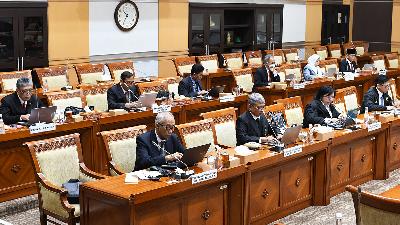
Commission III of the House of Representatives rejected all the Supreme Court judge candidates proposed by the Judicial Commission. The rejection allegedly was due to their favored candidate failed to pass.
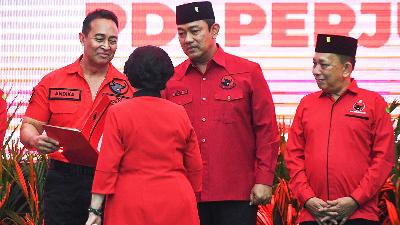
The Indonesian Democratic Party of Struggle (PDIP) strives to counter candidates supported by the Palace. It is an early projection for the 2029 General Elections.
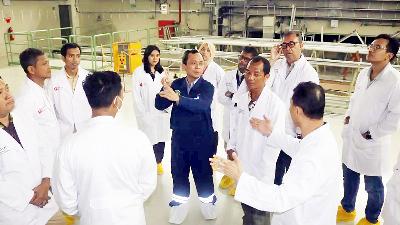
BRIN is designing the Peluit-40 nuclear reactor to replace diesel power plants, claiming it to be safer.
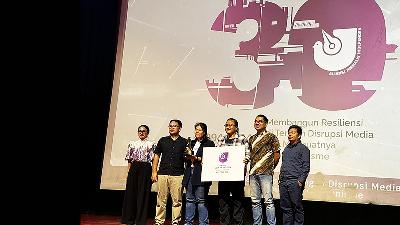
The Bocor Alus Politik podcast receives the Udin Award that we dedicate to our viewers and readers.
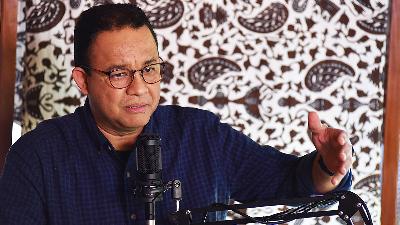
An exclusive Tempo interview with Anies Baswedan regarding his chances to run in the Jakarta regional head election.

Jokowi and Prabowo’s coalition are maneuvering to thwart Anies Baswedan’s candidacy in the Jakarta regional head election. Cabinet posts are being offered as inducements.

Tommy Hermawan Lo’s name emerges following the mention of Mr. T in online gambling that involves human trafficking case. He is a director at a casino management company.
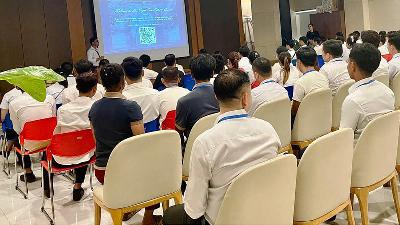
Victims of human trafficking for online gambling and scamming in Cambodia claimed of being forced to work 12-hour shifts and being beaten. Recruitment is still ongoing.
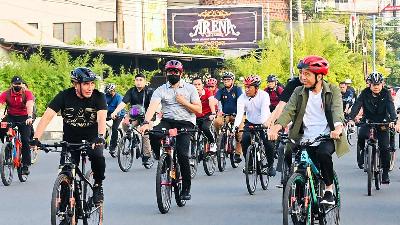
The battle in the presidential election is set to continue in regional head elections. The PDI-P is determined to challenge President Joko Widodo’s candidates.
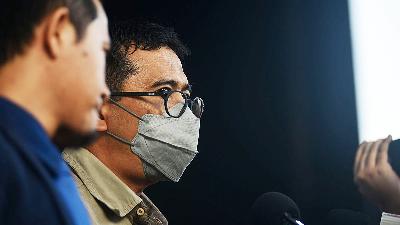
Personal protective equipment corruption suspect, Budi Sylvana, denied inflicting up to Rp300 billion of losses to the state. He revealed the roles of other officials in the case.
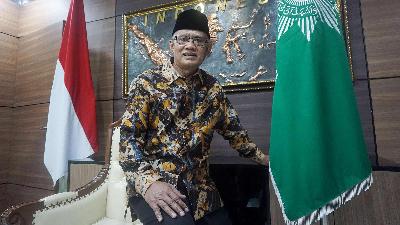
Muhammadiyah follows Nahdlatul Ulama’s step to accept mining concession offer from the government. Muhammadiyah General Chair Haedar Nashir explains about it.
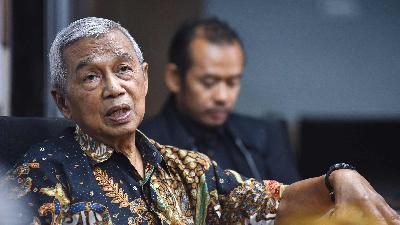
Muhammadiyah accepts the government’s mining concession offer. Many members are against it. Busyro Muqoddas, Chair of Muhammadiyah’s Law and Human Rights Council explains.

Muhammadiyah cadres and administrators are divided in their response to the mining concession. There are whispers from the government and the entrepreneurs.

Retno Marsudi dismissed the idea that the government is merely meddling foreign affairs. She emphasized that Indonesia is a trusted partner on the international stage.
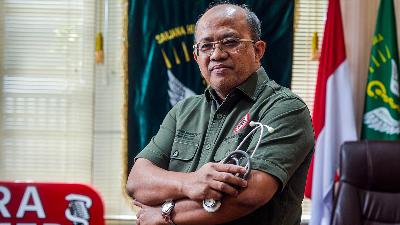
Chair of IDI, Mohammad Adib Khumaidi, discusses the polemic over the plan to allow foreign doctors to practice in Indonesia. He emphasizes stringent regulations are necessary.
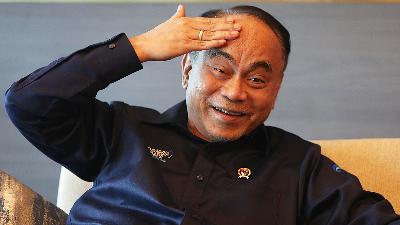
Communication and Informatics Minister Budi Arie explains the cyberattack on the Temporary National Data Center. He dismisses allegations of negligence.

Infinite Earth responds regarding the revocation of Rimba Raya Conservation’s ecosystem restoration permit.

There will be a wave of layoffs at Tokopedia as a result of inefficient practices. This is the result of government policy rife with conflicts of interest.
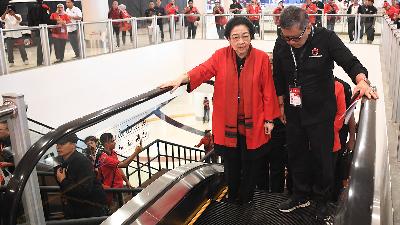
The PDI-P is preparing to replace Hasto Kristiyanto after he was questioned by the KPK in the Harun Masiku case. They are wary of the Palace’s interference.
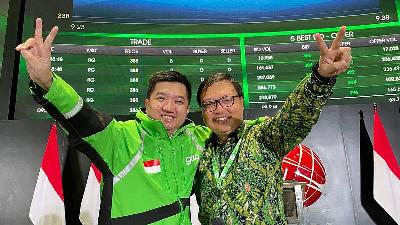
The founders of GoTo and Tokopedia sold their shares. New investors now have control of ownership.

Tokopedia made significant cuts in its workforce following its business consolidation with TikTok. A consequence of inefficient business operation.

Muhammadiyah’s business networks cover various sectors, from education to financial services. It seeks to create a closed economic ecosystem.
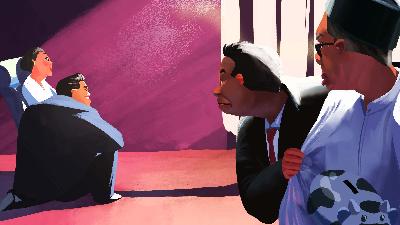
Muhammadiyah withdrew trillions of rupiah from Bank Syariah Indonesia. It was the accumulation of various problems, from operational matters to appointment of commissioners.
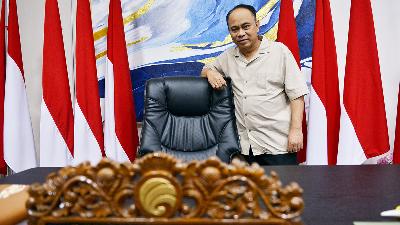
Communication and Informatics Minister Budi Arie Setiadi talks about the polemic over the planned revision of the Broadcasting Law and the Starlink Internet service.

Narendra Modi is likely to serve his third term as the Prime Minister of India. His campaigns are based on populism and religion.
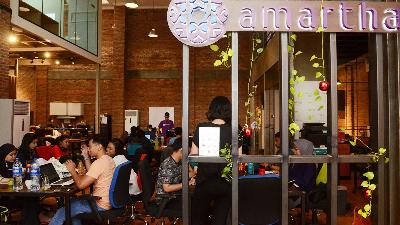
The fintech lending business is increasingly losing steam. Returns continue to decline while fund owners are opting for other investment portfolios.
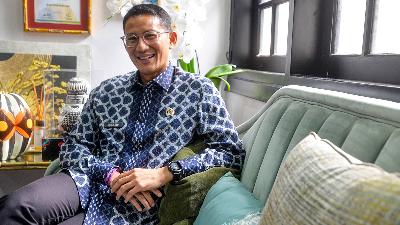
Tourism and Creative Economy Minister Sandiaga Salahuddin Uno assures that the tourism fee will not be imposed on plane tickets.
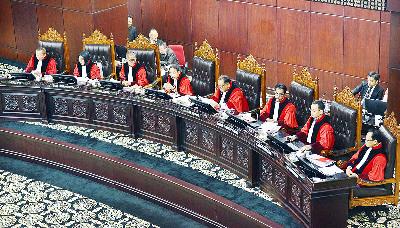
The Constitutional Court rejected lawsuits disputing the results of the 2024 presidential election. The option of disqualifying Gibran was discussed in a meeting of the judges.
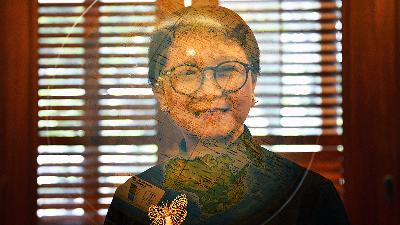
Foreign Affairs Minister Retno Marsudi explains the Gaza war and the Iran-Israel conflict with its impact on Indonesia’s economy.
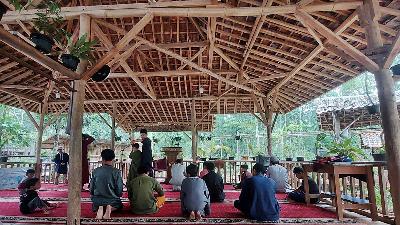
Islamic boarding schools (pesantren) cannot be closed even if they do not have a license from the government. There is no protection from the Ministry of Religious Affairs if legal problems arise.
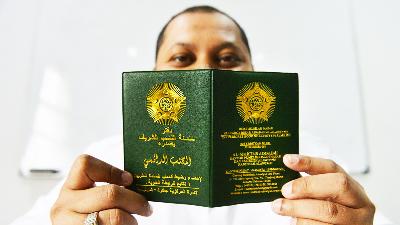
The Rabithah Alawiyah organization is in charge of recording and preserving the line of descent of the Alawiyyin in Indonesia. Seven books from Yemen serve as their guide.
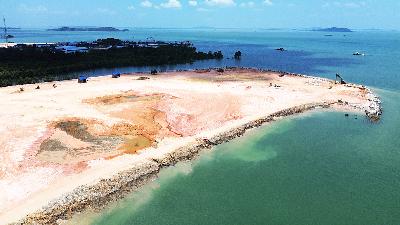
Several companies are applying for permits to utilize sediment, including sea sand. Large corporations use landfills for land reclamation areas.

Indigenous people are taking legal action against the President and the DPR for delaying deliberations of a bill. It has taken second place to the interests of investors.
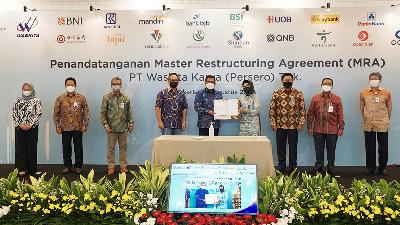
State banks stop distributing loans to state construction companies. Government assignment projects are burdening banks.
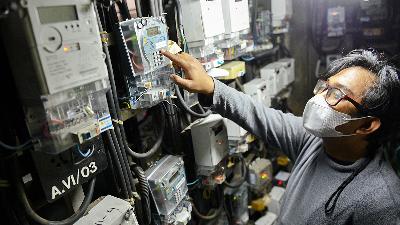
The government opens the option of switching energy subsidies for the free lunch program. This threatens poor households.

The government issues a regulation to develop the game industry. There will be a special funding agency.
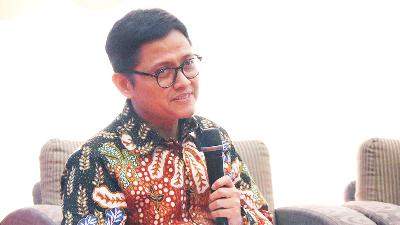
Discussions of the Asset Recovery Draft Law is stagnating in the DPR. It is key to preventing money laundering.

TikTok Shop’s acquisition of Tokopedia changes the Indonesian business map. It is not clear how small and medium enterprises will be protected.
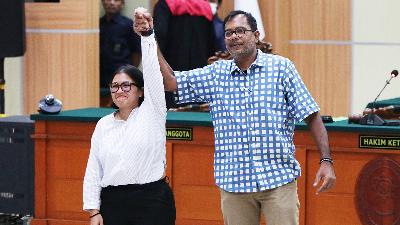
The prosecutor persists in filing a cassation against the acquittal of Haris Azhar and Fatia Maulidiyanti. It is a threat to the freedom of expression.

GoTo CEO Patrick Waluyo reveals the story behind the selling of Tokopedia shares to TikTok. How much profit did GoTo get?
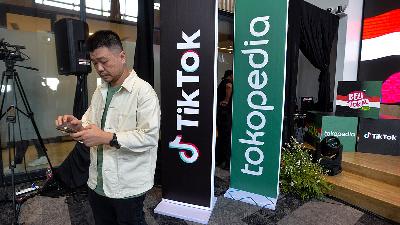
The integration of TikTok Shop with Tokopedia will reinforce GoTo’s business. Indonesia’s e-commerce competition landscape is changing.
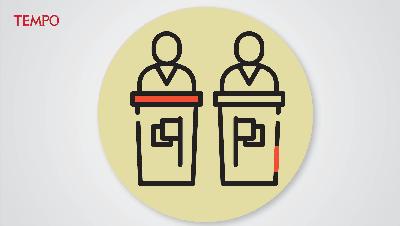
The presidential and vice-presidential candidates are relying entirely on gimmicks to exploit the emotions of the people. This moves the campaign away from substantive discussions.

Do the presidential candidates succeed in attracting young voters with social media gimmicks?
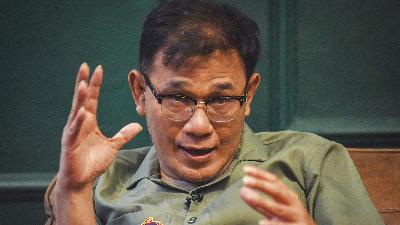
Budiman Sudjatmiko persuades other activists to support Prabowo Subianto. He claims he is not motivated by money.
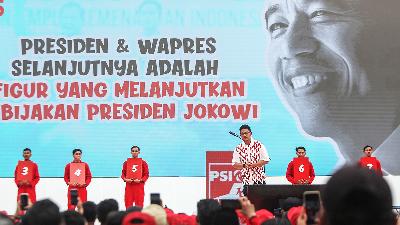
How does the Indonesian Solidarity Party get its funding? Is the aid from conglomerate bosses like Djarum’s owner true?

Presidential Chief of Staff Moeldoko is writing regarding his alleged interference in electric vehicle policy over Wuling’s SNI certification.

Post-Firli Bahuri, the Corruption Eradication Commission (KPK) is still walking backward toward its grave. A radical reform is needed.

The presidential candidates’ campaign teams are an illustration of the type of government they would form if elected. Businesspeople have a central role.
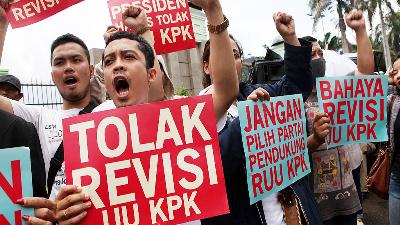
The Corruption Eradication Commission is no longer independent ever since it became part of the executive body. The fruit of the revised KPK Law.
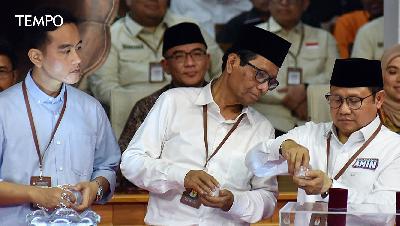
In Indonesia, presidential candidate debates are planned as bogus performances. There is no in-depth discussion of the issues.

Yet again, a member of the Supreme Audit Agency is involved in corruption. The system for selecting these state auditors is very poor.
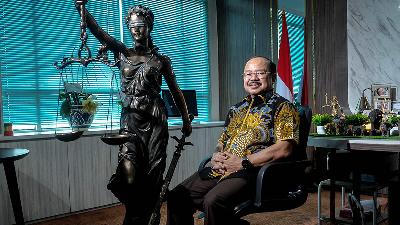
Judicial Commission Chairman Amzulian Rifai explains the boundaries of his authority in dealing with judges, and the Judicial Commission Bill.
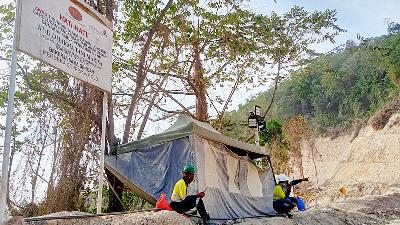
Sandiaga Uno and Garibaldi Thohir’s company is in conflict with local miners. The amount of compensation is considered inadequate.
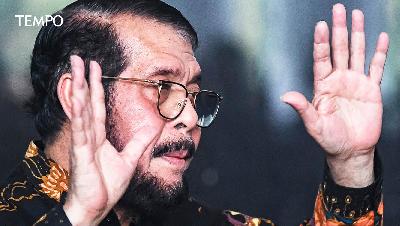
Having no democratic legitimacy, Gibran Rakabuming Raka must withdraw his candidacy for the vice-presidency.
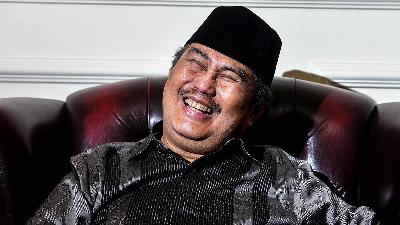
Tempo's special interview with MKMK Chairman Jimly Asshiddiqie regarding the dismissal of Anwar Usman as Chief Justice of the Constitutional Court.
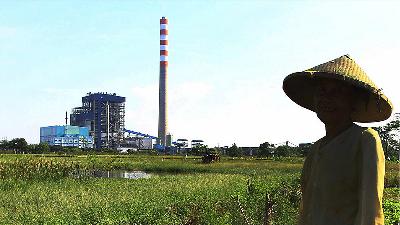
The program to put coal-fired power plants (PLTU) into early retirement is hampered by funding problems. As grants are stuck, the state budget must be disbursed.

Nepotism is the close relative of corruption and dictatorship. The Indonesian Independence Proclamation places nepotism as a threat to independence.
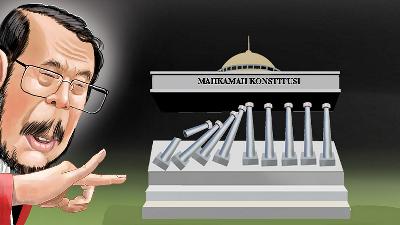
Constitutional Court Chief Justice Anwar Usman is reportedly maneuvering to lower the minimum age limit for presidential and vice-presidential candidates, paving the way for Gibran.
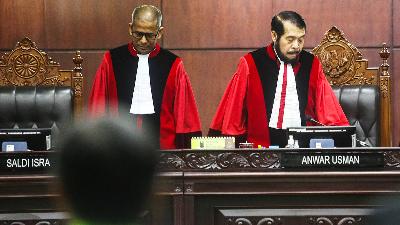
The Constitutional Court reportedly already made a decision in favor of a lawsuit regarding the minimum age requirement for presidential and vice-presidential candidates. The issue is rife with conflicts of interest.

Carbon trading is simply a way to mitigate climate change. The main aims are the energy transition and environmental protection.
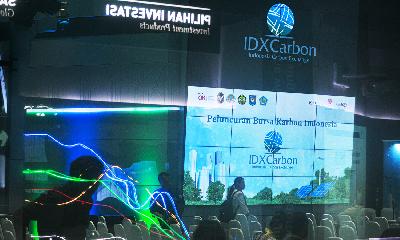
The Indonesian Stock Exchange established four carbon trading mechanisms. There were 27 transactions in three schemes in the initial sale.

Presidential candidates’ supporters are creating unfavorable atmosphere in the build-up to the 2024 general elections with them more inclined to speak about rivals’ weaknesses than promoting their champions’ profiles.
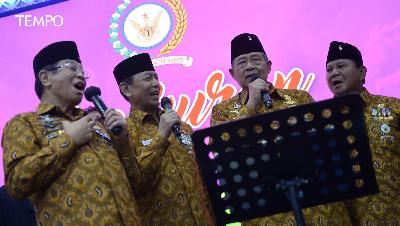
The 2024 presidential candidates are competing to garner support from retired generals. This perpetuates the militaristic nature of Indonesian politics.

The plan from the OJK to introduce carbon units as securities could lead to problems. Carbon trading no longer means a reduction in emissions.

The three soldiers who allegedly killed a civilian should be tried in a criminal court. The Military Courts Law needs to be revised.
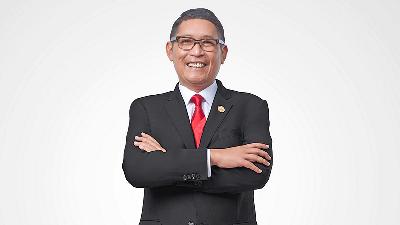
The OJK regulates carbon exchanges as a securities trading platform. How will the OJK prevent greenwashing in the carbon exchange?

The news in our media is problematic. Why is that?
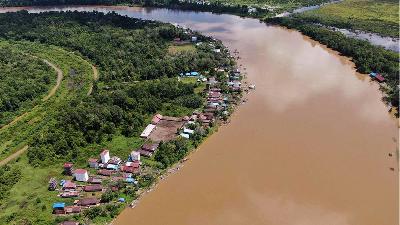
Voluntary carbon trading has stopped since 2021, due to upside down policies.
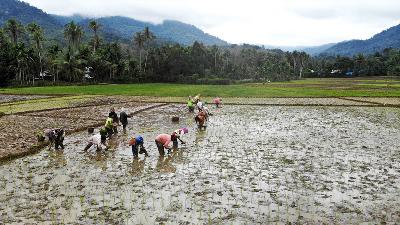
Individuals and companies are already implementing carbon trading in the voluntary market. But no price standard has been set.
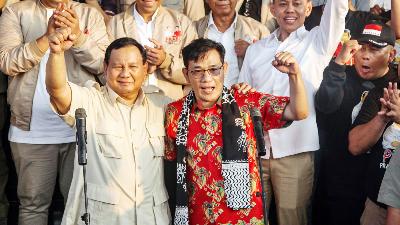
News summary, from the dismissal on Budiman Sudjatmiko to Food Estate.
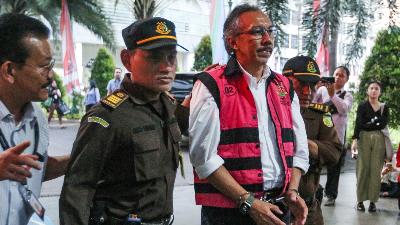
Former Director-General of Mineral and Coal, Ridwan Djamaluddin, is named as suspect in the Mandiodo Block nickel corruption case.
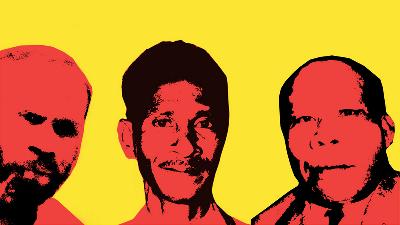
Why did the prominent figures from Papua fail to bring the Papuans to support the Republic of Indonesia?
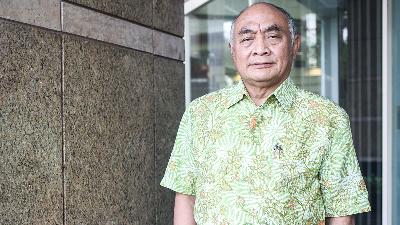
The government faces difficulties accommodating kidney donors and recipients. The need for kidney donors is high, but the supply is very limited.
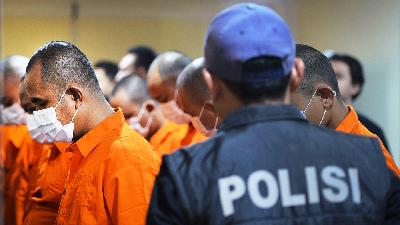
The police exposes Indonesian kidney trafficking network in Cambodia. The victims are enticed through social media.

The government removed the conditions for electric motorcycle subsidy recipients. It will be made available to everyone.

The National Genome Center set up in 2018 is gone. Does it change into the Biomedical and Genome Science Initiative of the Health Ministry?

A lower credit rating makes the United States government to charge higher interest rates. It naturally spreads to other countries’ securities, including Indonesia.

The support for Prabowo Subianto from Budiman Sudjatmiko and other 1998 activists is a form of political pragmatism. A disavowal of justice for the victims.

Adipratnia Satwika Asmady was behind the launch of Satria-1 satellite. She controlled the satellite’s designing and assembly until it soared into the sky.

Central Sulawesi designates six indigenous community forests as strategic areas in its Spatial Planning Design. This is a first for Indonesia.
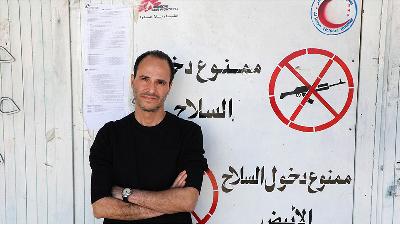
Interview with Christos Christou, International President, Doctors Without Borders (MSF)
“Only 30 percent of the children with TBC in Indonesia were diagnosed.”
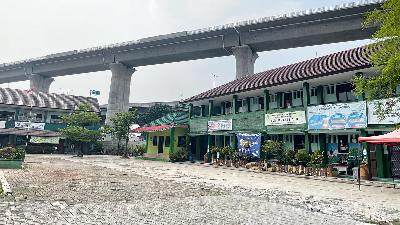
Compensation for the Jakarta-Bandung high-speed rail line in Bekasi is believed to have been misdelivered. Bekasi Mayor Rahmat Effendi reconciles with the land claimants.
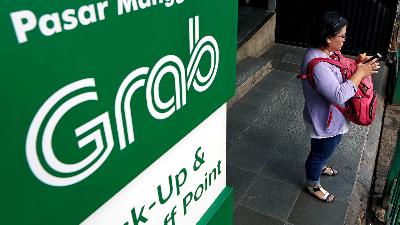
Grab is preparing a scenario to list in Nasdaq, aiming for a proceeds of Rp65 trillion to fund its ambition to become Southeast Asia’s number one super app.

Having worked in the forests of East Kalimantan for more than 20 years and become knowledgeable about the cycles of annual forest fires, Agusdin's instincts on signs of an impending fire are finely honed. In mid-October, he saw an orangutan ambling along the Wain river, a protected forest.
Agusdin, 44, a law graduate of Balikpapan University, immediately suspected fire somewhere in the forest. He remembered seeing something similar 18 years ago, before a fire engulfed the area.

Haze-Fighting Canals
Using local wisdom, four villages in Riau have built canals to attenuate the impacts of forest fires during the dry season.

In the past two weeks, Teten Masduki was almost never absent from the side of President Joko Widodo. He accompanied Jokowi when he launched the 2 x 1,000 Megawatt power generator project in Batang, Central Java, two weeks ago. Two days later, Teten was with Jokowi to open the President's Cup football tournament in Bali.
In those two weeks, Jokowi never gave any sign he was about to appoint Teten as presidential chief of staff. Only after his swearing in did the President convey his hopes and expectations to Teten, who was once the executive chief of the Indonesian Corruption Watch. "Pak Jokowi wants this office to really become the President's backbone," Teten told Tempo reporters Yandhrie Arvian, Sunudyantoro, Jobpie Sugiharto and Ananda Theresia at Bina Graha, last week.

THE Energy and Mineral Resources Ministry has an ambitious plan for next year: raising the budget for the development of renewable energy by 10 times. "The future of Indonesia's development depends on seeking and building renewable energy. We can no longer rely solely on fossil fuel energy, which is bound to become scarce," said Dadan Kusdiana, director of the ministry's section on bio-energy.

THE senior NasDem Party official's name was quoted frequently in the media when Indonesia and Angola signed an agreement last October on the supply of crude oil. After all, it is his boss, party chairman Surya Paloh, who has been attributed for the successful negotiations that led to a collaboration between Sonangol EP, an Angolan government-run oil company and its Indonesian counterpart, Pertamina.

At the foot of Mount Nyuncung a group of villagers is set to remain. They adopt local wisdom and tradition in managing their natural environs.

The sacking of Chief Prosecutor Rusdi Taher could be a momentum to clean up the justice system of corrupt prosecutors.

The leader of the Doomsday Sect has been sentenced to two years behind bars.

Following are excerpts from the testimony of Indonesia’s former police chief General Rusdihardjo. It was made on November 28 to a special House of Representatives (DPR) committee on the scandal known as Buloggate and on a controversial donation from the Sultan of Brunei. This testimony was obtained from TEMPO’s investigation and information from legislators. This is what Rusdihardjo told them.
Independent journalism needs public support. By subscribing to Tempo, you will contribute to our ongoing efforts to produce accurate, in-depth and reliable information. We believe that you and everyone else can make all the right decisions if you receive correct and complete information. For this reason, since its establishment on March 6, 1971, Tempo has been and will always be committed to hard-hitting investigative journalism. For the public and the Republic.